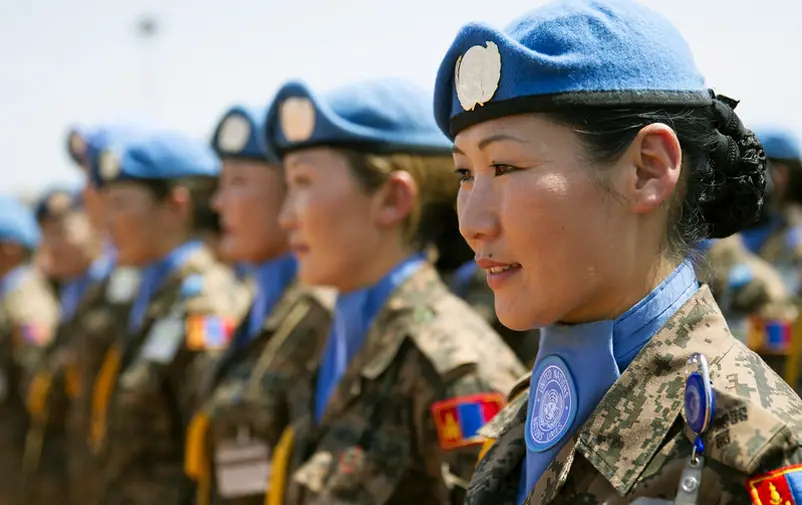
Photo: UN Photo/Martine Perret
– Sure. The EUMM has three field offices in Georgia, and I am Deputy Chief at one of the offices. There are about 65 employees at my office, most of them working as monitors. They patrol the administrative border line towards South Ossetia, one of the two regions that de facto broke out of Georgia after the fall of the Soviet Union. The monitors are watching what is happening in the area, in accordance with the agreement that was established after the fighting in 2008. They also visit the Georgian police and military in order to monitor their activities, and they interact with the conflict affected population and civil society, and report on the situation on the ground. I, however, spend most of my time at the office. But I try to join a patrol at least once a week.
– The situation is currently stable, but the ongoing conflict in Ukraine creates some concern. The EUMM has been operating in Georgia since the violence in 2008, and we have an important task. We manage to make a difference; we create security so that people can go on about their lives. The conflict is far from being solved, but we contribute to stabilisation and normalisation.
– I have spent five years working with the FBA’s training and education, I am currently on a leave of absence from the job. I have also spent a total of 15 years working in international peace missions. To name a few, I have been Head of Logistics for Temporary International Presence in Hebron (TIPH) in Palestine, and Liaison Officer for EUPOL Afghanistan. But I started my career working with business administration and as a reserve officer. I did my first peacekeeping missions within the Swedish Army, later on I became a civilian.
– The courses were great. The course on protection against risks and threats in conflict areas is incredibly useful in my everyday life now, since the EUMM operates in the field, where you are exposed to threats. And the Gender Adviser Course brought me hands-on advice on how to act as a leader in order to pursue gender equality. For example, I have initiated that we discuss gender issues at our weekly meetings at the field office. We make sure that we reach out to both men and women when we conduct interviews with the local population, and we are trying to analyse our results from a gender perspective. Gender mainstreaming has to be done in a systematic way.
– Right now, I am engaged in the ongoing restructuring of the mission. We are developing the organization in order to be more efficient, and we try to adapt our methods of work with regards to the change of situation in the country since 2008. We need to free resources for other conflicts, for example the EU mission in Ukraine. With a more streamlined organization, the EUMM can continue contributing to a solution to the conflict in Georgia.
MORE FROM HOME
What does research tell us about strategic civil-military leadership in UN integrated missions? The recent FBA research brief "Mission Leaders: An Evidence-based Assessment” presents seven policy recommendations.
2025-07-01 13:34FBA has both increased and adapted its work in Ukraine in the wake of Russia's invasion.
FBA in UkraineKlara Grenhagen works as a specialist at FBA's Africa unit with a focus on dialogue, reconciliation and peace processes.
More about our expertsFBA is part of Sweden’s development aid within the area of peace and security
Read more about the countries where we work